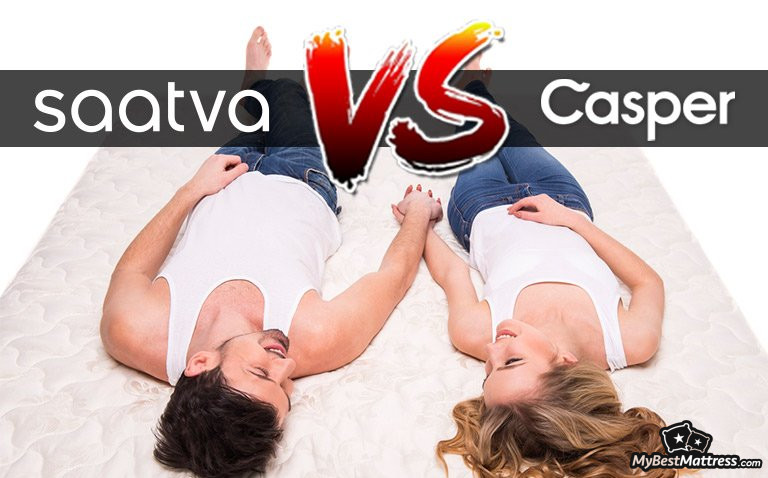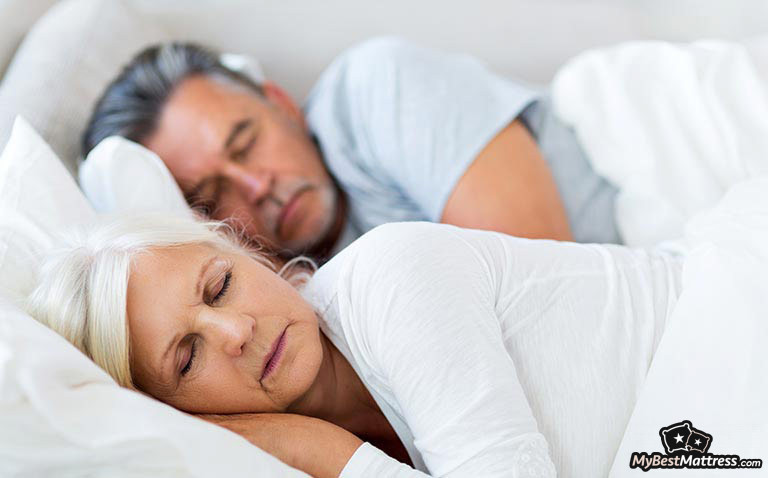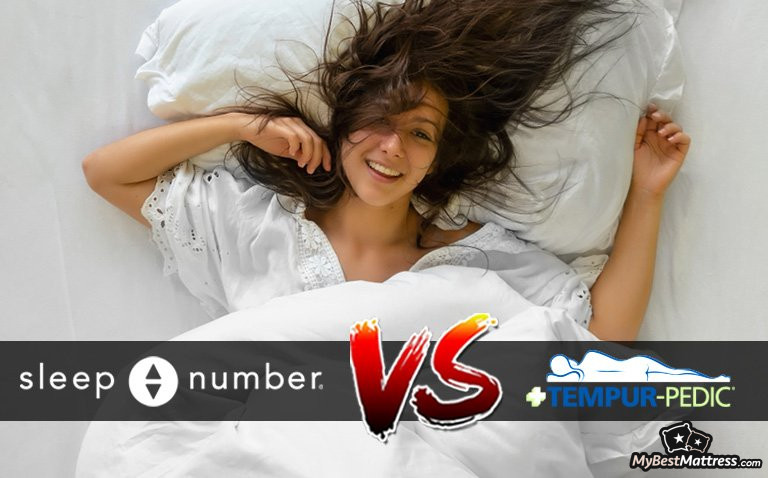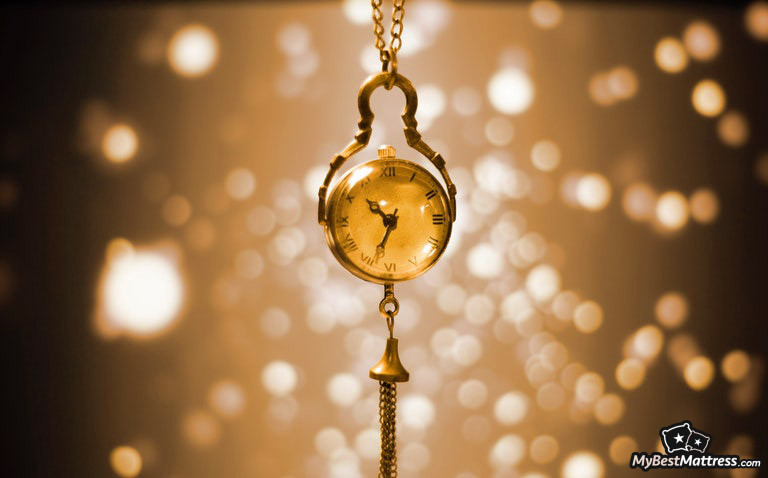
Whenever we hear the word "hypnosis" - it sounds scary, and kind of like a mind-control weapon that you see in the movies. That is because it is rather a under-researched topic. Especially hypnosis for sleep, since people have trouble sleeping a lot more often.
I’m sure you are all familiar with how hypnosis works in cartoons or TV shows - some spooky villain who is also a doctor puts the main character on the therapy couch...
Then he takes out his Hypno pocket watch, starts swinging it in front of said character until the villain gains control of his mind. However, that’s not how it works in the real world.
Using hypnosis to fall asleep has always been portrayed as something fictional because in practice - it would only work for some people, or only at certain times.
Therefore, no one would really even raise the question of "does sleep hypnosis work". However, modern research and technology may let us figure out the exact effects of hypnosis. And it could be beneficial for sleep disorders.
Table of Contents
- 1. Hypnosis for Sleep and Insomnia
- 2. The Process of Hypnotherapy
- 3. Bed Products for Troubled Sleepers
- 3.1. Mattresses
- 3.2. Pillows
- 4. Should You Take Hypnosis for Sleep?
- 5. Hypnosis for Sleep Without a Therapist?
- 5.1. Self-Hypnosis
- 5.2. Audio Recordings
- 5.3. Meditation
- 6. Alternatives
- 7. Getting Enough Daylight
- 7.1. Exercising
- 7.2. Watching Video Content
- 7.3. Trying the Military Method
- 8. Conclusions
Hypnosis for Sleep and Insomnia
Hypnosis in general is a technique that lets individuals go into a trance state by focusing on some sort of object or a thought. This way, people are more open to new ideas and feel relaxed.
Reason for that is - external, rational thoughts are boxed away, but rather emotional, calming ideas get introduced more openly.
According to the American Psychological Association, hypnosis is used to assist people who are in need of dealing with subconscious thoughts.[6] The article suggests that hypnosis is usually delivered in two ways:
- Using suggestions during the trance state of hypnosis. This allows the patient to tackle certain habits (like smoking) or treat painful memories and experiences.
- Looking for possible traumatic events in the subconscious mind of a patient. This way, patients find out the real cause of their pain, which gets treated by psychotherapy.
In a nutshell, patients can be treated without taking any medication or using mind-altering technology.
"What about sleep hypnosis?"
Well, it is basically the same as regular hypnosis - only the subject is different. Hypnosis for sleep tries to tackle issues that interfere with sleep.
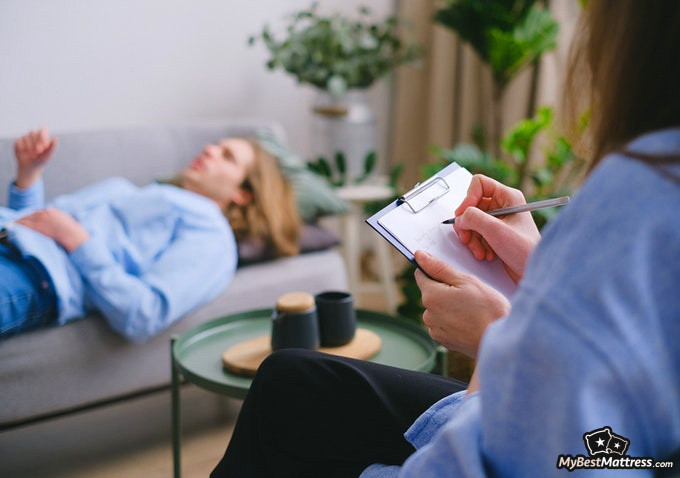
And no, hypnotherapy won’t put you to sleep during the session. You will be fully aware of your surroundings, but not as heavily focused on them.
Here is a list of some sleep problems that you may treat with hypnosis for sleep:
- Morning anxiety
- Mood swings during the day
- Frequently waking up in the middle of the night
- Having a hard time falling asleep at night
- Trouble memorizing or remembering things
These are the usual indicators of insomnia that could be treated by hypnotherapy. And hypnosis for insomnia seems like a good, drug-free way to treat this sleep disorder.
In case you're wondering - insomnia is the inability to sleep which can turn into an actual disorder. It could be only temporary because of a disrupted sleep schedule, stress, and it usually goes away after a couple of days.
However, some people experience insomnia for longer periods of time. This can happen because of certain mental disorders, diseases, or even allergies which may require hypnosis for insomnia.
In general, the main causes of insomnia are usually linked to depression, anxiety, and stress. Normally these causes would be treated by medication, staying busy throughout the day, or just getting over them through time.
This might help some, but others might have severe cases of insomnia caused by depression, anxiety, or stress. So "getting over" these issues or using medication might just push the issues back, and make the situation even worse.
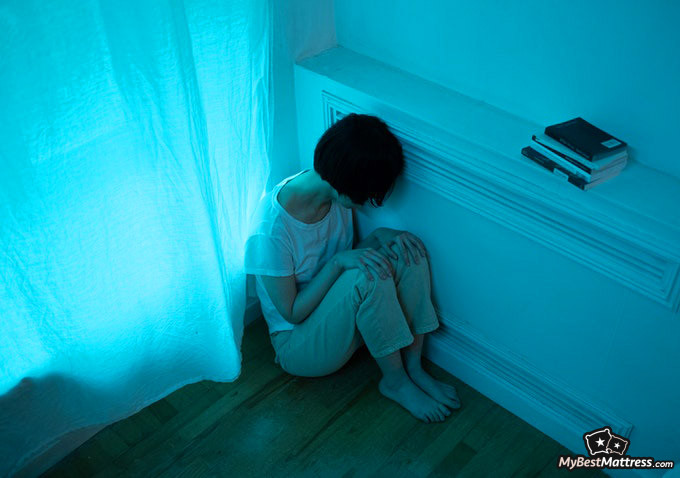
Likewise, if you experience insomnia for long periods of time - it can negatively affect your physical state. Some physical issues may include:
- An unusual increase in body weight
- Symptoms of heart disease and diabetes
- Inability to perform basic tasks
And these are only some of the main indicators which may occur because of insomnia. Therefore, hypnosis for sleep is used not only to treat your lack of sleep, but is also a huge step for a healthier lifestyle.
If you’d like to learn more about treating insomnia, check out these 5 factors to cure insomnia.
The Process of Hypnotherapy
So, does sleep hypnosis work? Well, it depends on your hypnotic susceptibility. It is measured by using different scales to understand how likely a person is to be hypnotized. But these sorts of susceptibility scales are not foolproof.
Many claim that if a person doesn’t want to be hypnotized, and refuses to give in to the methods of hypnotherapy - then the hypnosis won’t work. In other words, if the scale shows that you are highly susceptible to hypnosis - it only means that you are more likely to be interested in being hypnotized.
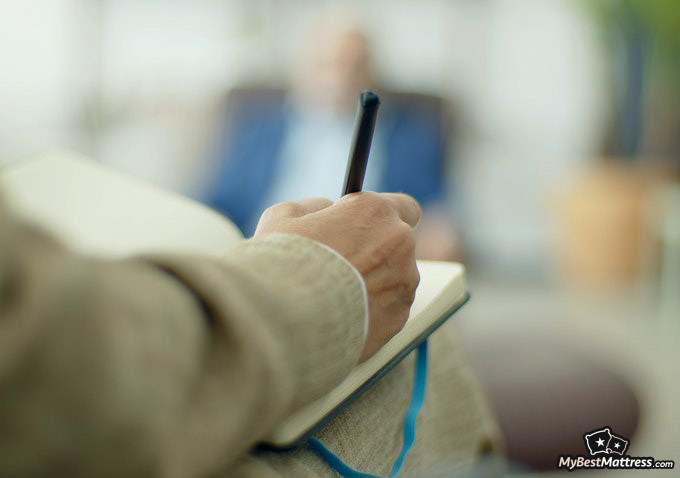
Like I’ve mentioned before, it’s not very different from the basic methods of hypnosis. Let’s look at the stages of hypnosis to fall asleep faster.
The session usually begins with the therapist figuring out the possible causes of your sleeping troubles. It is basically a background check so the professional knows what he might be working with. These can include substance abuse, physical activity, sleeping schedule, etc.
Once that is done, the hypnotherapy session starts when you are put into a trance state. At this point, the therapist will try to dig (metaphorically) through your subconsciousness. This is done to hopefully uncover some deeper causes that interfere with your sleep like trauma from the past or underlying stress.
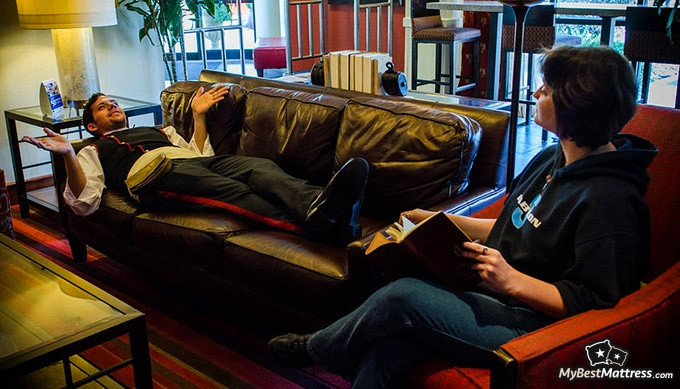
Alongside asking you questions about the past, the therapist might suggest you to remember how good sleep feels like - which is known as guided imagery.
Then there are the hypnotic suggestions that the therapist gives to you during your hypnosis session. The way these suggestions work is rather simple: you remember hearing some pointers from the session, and then act on these suggestions after your session is done.
Finally, after completing the session, you may be given some tasks to do at home like audio/video recordings, maybe even some exercises as well.
As a side note, these stages may vary depending on the therapist so be prepared for some things to be missing. Maybe you'll get some more innovative methods of using hypnosis for insomnia, or sleep in general. But this is basically the structure of how things are expected to look during a sleep hypnosis session.
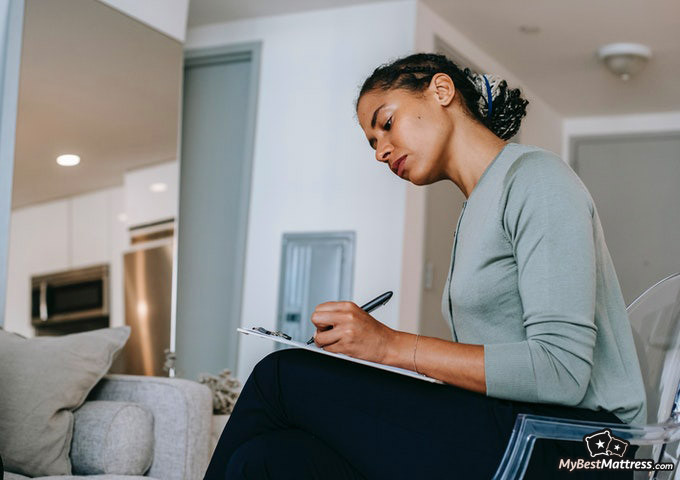
Now that we know what hypnosis is and how it is used for sleep-related issues, let’s find out if it actually helps you go to bed.
Over the years, there have been quite a few things that have been discussed about hypnosis for sleep. Some disregard hypnosis in general because they believe it to be a trick that makes people think positively for a short period of time. And that it doesn’t really have any effect in the long run.
On the other hand, modern technology is able to detect brain activity and evaluate how hypnotherapy can help people sleep. Therefore, studies have been able to string together some positive results of hypnotherapy for sleep.

One clinical trial showed that hypnosis had a huge effect on deepening sleep.[1]
During this study, seventy healthy females who took hypnotherapy were monitored. The main objective was to determine how it affected their slow-wave sleep.
SWS (or slow-wave sleep) is basically a stage of sleep when our brains are fully relaxed, and our bodies are able to restore for the next day. However, as we get older, our slow-wave sleep decreases.
During the experiment, the women listened to audio recordings with hypnotic suggestions. After that, they took a 1 hour and 30 minutes nap while their brain activity was monitored.
The study concluded that the monitored women had their SWS increased by 81%, and the time that they were awake got reduced to 67%. The hypnosis did not interfere with other sleep stages and had no side effects.
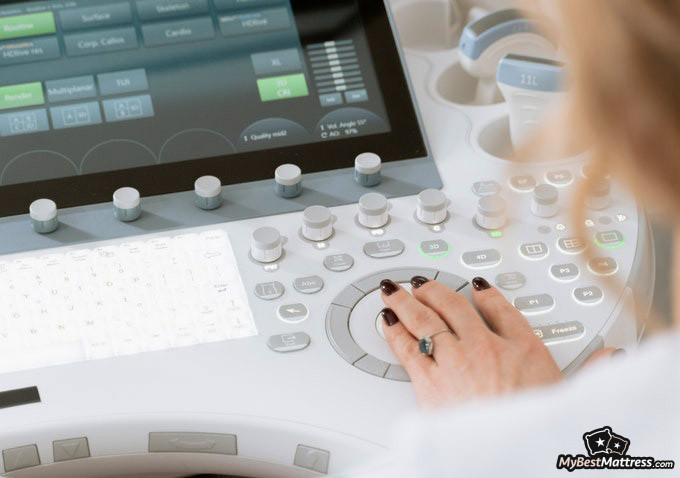
Another study done by the Journal of Clinical Sleep Medicine reviewed the outcomes of sleep hypnosis experiments done before 2017.[2]
The results showed that out of 139 hypnosis studies, almost 60% percent of them presented positive effects of hypnosis on sleep, and 12.5% percent of them had mixed results. The rest of the studies showed no effect of hypnotherapy on subjects.
"So, in general, does sleep hypnosis work?"
I guess it does - according to the research of course. However, while more than half of the studies had positive outcomes - it is still uncertain whether hypnosis to fall asleep faster will have an impact on people with depression and anxiety, that also suffer from insomnia.
Like I’ve mentioned before, hypnosis for sleep still lacks research and its effects need to be carefully observed.
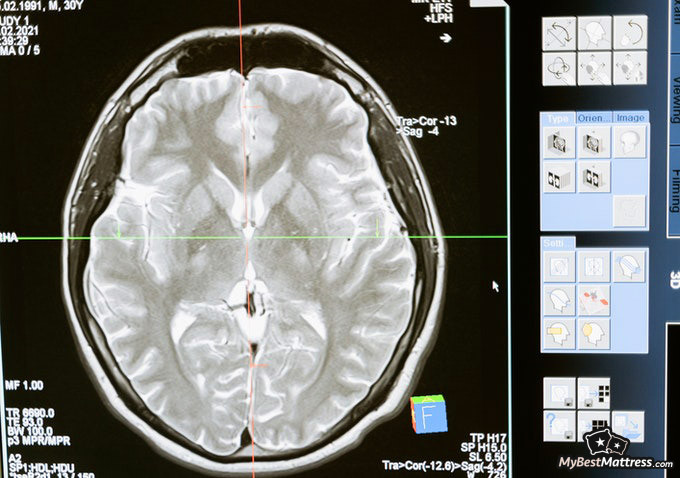
So before you actually try taking any form of hypnosis, you should see your doctor or a counseling psychologist. This is because you might not have any mental disorders - it could be your physical state that interferes with sleep.
And hypnosis obviously can’t cure a disease or physical pain.
However, if you are recommended hypnotherapy by a professional, then it might be a good way to treat your inability to sleep.
Now that we know how effective hypnosis for sleep might be, we can go ahead and summarize the benefits, and adverse effects of hypnotherapy.

Like every other medical treatment - you might gain positive results from hypnosis for sleep, but there are also some drawbacks that may occur. Not to worry though, according to the Mayo Clinic, hypnosis is usually a safe method when done by a professional.[3]
However, it should be noted that patients with severe mental illness might experience rare side effects like dizziness, anxiety, and headaches. This is the case for people who experience hallucinations, schizophrenia, or delusions. Why does that happen?
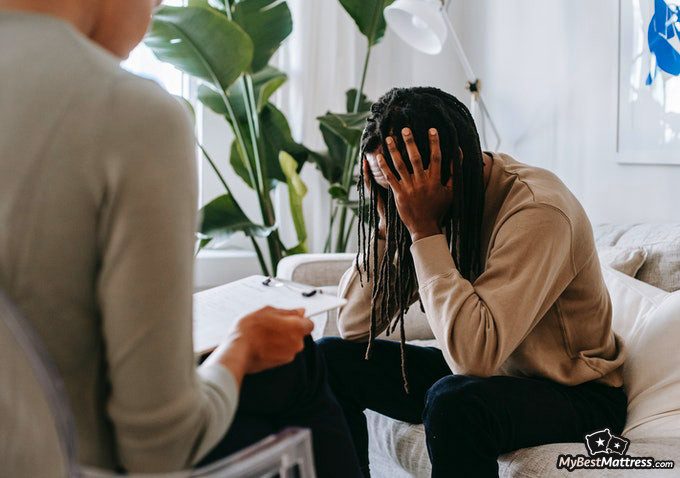
Well, they may remember shocking memories from the past and feel unwell during a hypnotherapy session. Therefore, people with emotional distress must be fully evaluated before starting a session of hypnosis for insomnia.
Bed Products for Troubled Sleepers
What if there’s nothing wrong with your sleep? In fact, what if it was your mattress, and you used it for so long - you never realized that it was uncomfortable.
Let's look at some bed products that may help you with your sleeping issues.
Mattresses
Mattresses tend to wear off after some time. So if you're looking to swap your old mattress for a new one - might as well check out, for instance, the Saatva Classic Mattress. It is an all-around great mattress with cutting-edge technology like weight distribution and temperature control.
However, If you're not interested in this particular one - check out our reviews on other mattresses that are of a similar caliber in terms of quality and comfort.
Latest Saatva Coupon Found:
UP TO $500 OFF
Limited-time Saatva Sale
We're sharing a limited-time Saatva mattress discount with our readers! Grab this deal & enjoy your new mattress with huge discounts.
Pillows
Alongside a comfortable mattress, getting a new pillow might solve the issue. If you are in any way like me, adjusting your pillow is like an evening exercise. You just can’t get it in a comfortable place.
Well, you could try an Adjustable Puffy Pillow which is a perfect solution for people like me who can never get the right angle to sleep on.
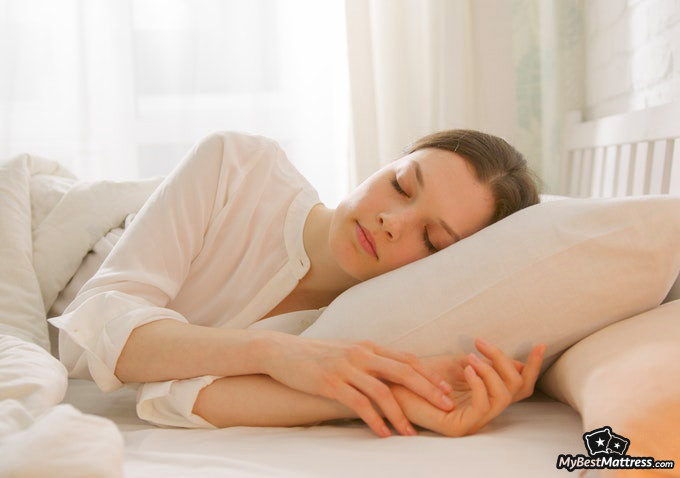
However, if you have any particular features in mind - might as well check out our reviews on other quality pillows, and find the one that suits you best!
Should You Take Hypnosis for Sleep?
It depends. According to an article published by CostHelper the price of hypnotherapy in the US may vary from $50 to $275 per session if a person is not covered by insurance.[5]
Therefore, you need to keep your financial situation in mind before going to hypnotherapy.

But is it worth it? Let’s say you’re just an average person looking to increase your quality of sleep. You might be having trouble at work, maybe you’re thinking about an important assessment that stresses you out.
So how can hypnosis for sleep benefit you? Here are some positive outcomes of hypnotherapy:
- You don’t have to take any medication. This is a crucial point because brain-stimulating prescription drugs can probably help you with insomnia, but then again - you will have trouble sleeping without taking pills.
- Hypnosis is considered one of the safest methods, especially for treating sleep disorders. This systematic review concluded that medical hypnosis and hypnotic suggestions are in fact safe, which is crucial for people suffering from disorders like insomnia.[4]
- Finally, you will learn how to do self-hypnosis for sleep without going to therapy. In other words, it will come to you naturally so you will be able to relax without professional guidance.
If you feel a bit stressed out before going to a hypnosis session, then let me tell you - it’s nothing to worry about. The only thing you have to keep in mind is - make sure that the therapy methods are right for you.
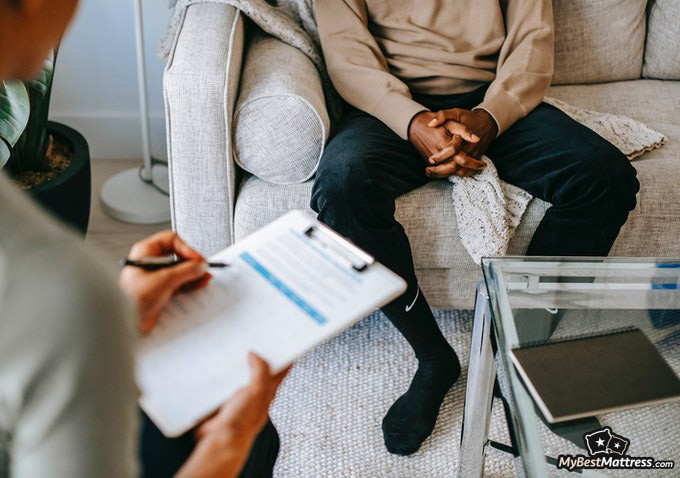
If you don't feel like therapy is working, or the methods of hypnosis are making you uncomfortable - notify your therapist immediately. In fact, let’s look at some things to consider before taking hypnotherapy:
- Hypnotherapy sessions could be quite costly and not covered by insurance. That is because clinics that offer hypnotherapy tend to be private. Likewise, hypnotherapists may offer extra material or extended visits that will require additional funds.
- Before taking any hypnotherapy sessions, you should explore what kind of treatment options will be applied by your therapist. For instance, some therapists may specialize in treating bad habits which could be irrelevant in your case.
- Lastly, you must first consult with a professional from a hospital before you take hypnosis for sleep. Especially if you have some severe illnesses which may not be treated by hypnotherapy. It could leave a dent on your financial situation.
Always remember - before taking hypnosis to fall asleep faster, you should seek advice from a medical advisor. Only then you may explore your options with hypnotherapy sessions.
But what if you don’t feel like going to a therapist? Is there something that you can do by yourself?
Hypnosis for Sleep Without a Therapist?
You might be wondering - does sleep hypnosis work without a therapist? It might, but it really depends on your susceptibility to hypnosis. There are multiple types of sleep therapy that you can try without getting a therapist. These don’t include any potentially harmful activities so they are definitely worth a try.
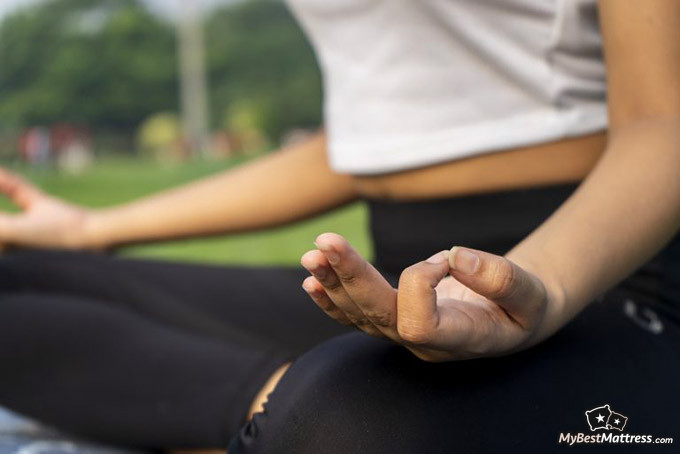
All of these ways mainly require having a quiet room, a computer or phone, and a pair of headphones. Let’s take a look at how we can use hypnosis to fall asleep faster at home.

Did you know?
Have you ever wondered which mattresses are approved as the best for sleep?
See & compare TOP mattresses side by sideSelf-Hypnosis
Requirements:
- Pen and paper or something to look up relaxing phrases
- Quiet environment
- Headphones (optional)
Self-hypnosis for sleep is a good way to calm your mind and get rid of external thoughts by learning and repeating relaxing phrases. You can write them by yourself or look up some online.
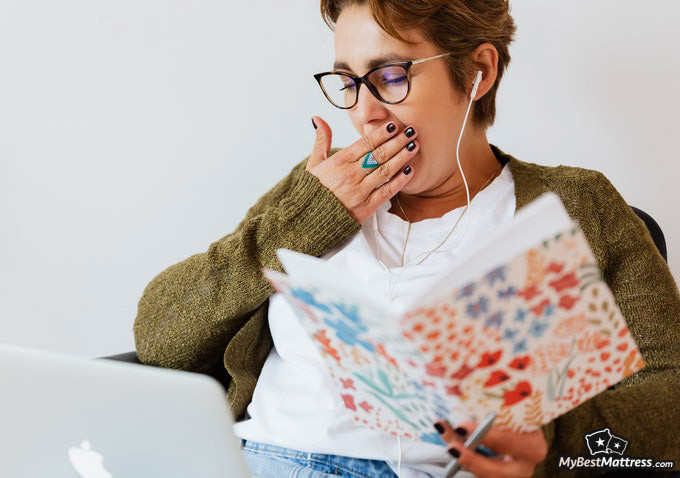
When you find the perfect phrase, try to repeat it in your head, out loud, or make a recording so you can listen to it in bed. An example of a hypnosis for sleep phrase would be:
“My eyelids are getting heavy, my body is fully relaxed, and I’m ready to fall asleep.”
Don’t be afraid to experiment. If one phrase doesn’t work - try another.
Likewise, you can do something less poetic and try counting sheep, or numbers until your head gets exhausted.
What if counting sheep or repeating the same phrase isn’t quite your thing? Might as well try self-hypnosis for sleep by listening to recordings. Let’s see how you can do it.
Audio Recordings
Requirements:
- Any mobile device that you can plug headphones into
- Headphones
There are a variety of sound recordings that may help you relax in bed. All you need to do is type in "relaxing music" on a platform like Youtube and see what comes up. Usually you'll get some relaxing videos with sounds of the ocean, or music with soft vocals.
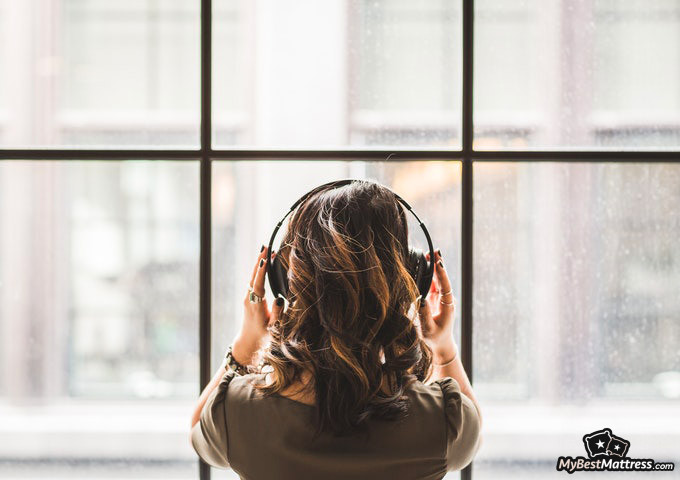
As a matter of fact, my uncle has had ringing in his ears (tinnitus) when sleeping for quite a while now. He found that soft but intense kicks of a music genre called liquid drum & bass help him alleviate the ringing in his ears. And surprisingly it worked wonders for his insomnia.
More than that, you can try purchasing some audio recordings from sleep therapy websites that offer sounds specifically designed for people with sleep issues.
However, some of us require complete peace and quiet in bed, because any sound will just be irritating. What else is there to do?
Meditation
Requirements:
- None
Everybody assumes that meditation is always something that involves sitting with your legs crossed in complete silence. Well, it could be done like that, but that isn’t the only way you can do it.
Meditation is all about finding a place where you don't have to worry about anything.
For instance, taking a walk in the park or somewhere peaceful for several minutes could do the trick. And it is considered meditating. Be sure to leave your phone at home though - any unnecessary distractions might break your meditative state.

If you don’t feel like leaving home - just find a quiet place inside your house and get comfortable. Stay there for some time, think about something relaxing. This way you will be prepared to finish your day in peace.
But that isn’t the case for everyone. Some might not be affected by meditation or other self-hypnosis for sleep. However, the problem could be right in their bedroom.
Alternatives
So if you reached this section, then you probably know everything about hypnosis for sleep. And by now you might be wondering if you actually need any therapy. In fact, most people just forget to do simple things which may interfere with their quality of sleep.
Let's look at some basic alternatives to hypnotherapy.
Getting Enough Daylight
I cannot stress enough how important daylight is for sleep. If you’re working at home or in a dark environment - that will take a lot out of you. In other words, your body will get confused and won’t know when is the time to relax.

Therefore, you will feel on alert even if you are lying comfortably in bed, and it will take you quite a while to fall asleep.
If you want to learn more about how daylight impacts sleep, take a look at our article about waking up earlier.
Exercising
We tend to exercise much less nowadays. And rightfully so, because most of the modern work doesn’t require a lot of physical effort. Therefore, doing at least simple exercises at any time will ensure that our bodies get some sort of physical activity.
That way, we won’t feel as alert at night, because fatigue will kick in as soon as we lie down on our beds.
Watching Video Content
If you’re anything like me, you can feel your eyelids getting heavier when watching something interesting on a big screen while lying in bed. It’s not for everyone, but you can certainly try.
Trying the Military Method
If you found this article then you must’ve seen the video on Youtube about how Navy Seals fall asleep in only a couple of minutes. Sounds unreal, right? Well, just like any other self-hypnosis for sleep method - it is uncertain whether it works for everyone. 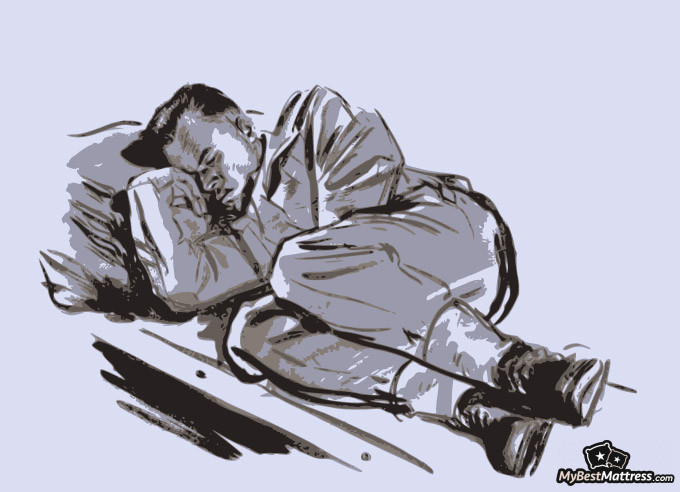
Anyways, let’s look at how you can do this falling asleep method at home. This method was first introduced in the book Relax and Win: Championship Performance by Lloyd Bud Winter. It has gained a lot of traction in the past couple of years, and some say that it works if you do it for an extended period of time.
This is how the method is done:
- First, you have to relax every part of your body. That includes your eyes, mouth, so everything feels at ease.
- Then you have to relax your shoulders and put your arms to the side.
- At this point, you have to take a deep breath and exhale as deeply as you can.
- Move on to your lower torso, legs, calves - relax these muscles.
- Think of something that would put you at ease for at least 10 seconds. If you fail - try to force yourself not to think for 10 more seconds.
- And now you should be asleep.
I know, it sounds very bizarre, but it’s worth a shot. I actually tried this a couple of years ago. Let me tell you - it’s not as easy as it looks. My thoughts kept shifting at every step so I wasn’t able to concentrate on the task at hand.
I failed before I even got halfway. I’m sure you will do better.
Conclusions
Hypnosis for sleep is a rather unusual method to make someone go to bed earlier. In fact, there still has to be a lot more research done before it could be treated as a fully effective method for treating sleep deprivation.
So, what do I think? Does sleep hypnosis work? I mean, under the right circumstances, I’m sure that it could work. Like I've mentioned before, hypnotherapy is definitely not for everyone until it is proven to be an effective solution for all sleeping disorders.
But before you start hypnosis for insomnia - try working through your issues with regular methods. Maybe switch up your sleep schedule, try some new bed appliances like a new mattress, exercise before bed, or explore some natural sleep aids.
Scientific References
1. Cordi M, Schlarb A, Rasch B: 'Deepening sleep by hypnotic suggestion'
2. Chamine I, Atchley R, Oken B: 'Hypnosis Intervention Effects on Sleep Outcomes: A Systematic Review'
3. MayoClinic: 'Hypnosis'
4. Häuser W, Hagl M, Schmierer A, et al.: 'The Efficacy, Safety and Applications of Medical Hypnosis'
5. CostHelper: 'How Much Does Hypnotherapy Cost?'
6. American Psychological Association: 'Mental Health and Hypnosis'
Leave your honest feedback
Leave your genuine opinion & help thousands of people to choose the best mattress. All feedback, either positive or negative, are accepted as long as they’re honest. We do not publish biased feedback or spam. So if you want to share your experience, opinion or give advice - the scene is yours!



